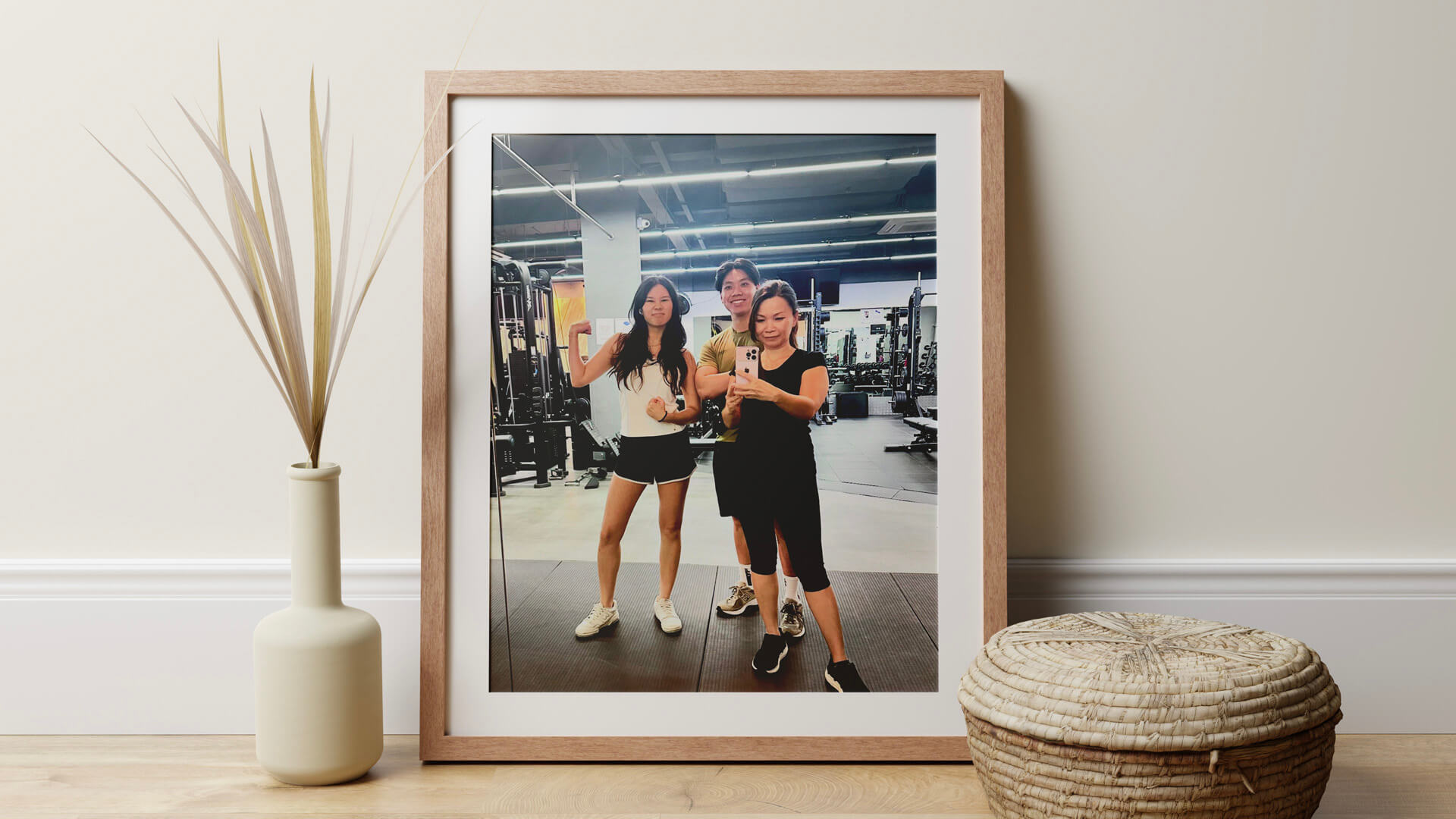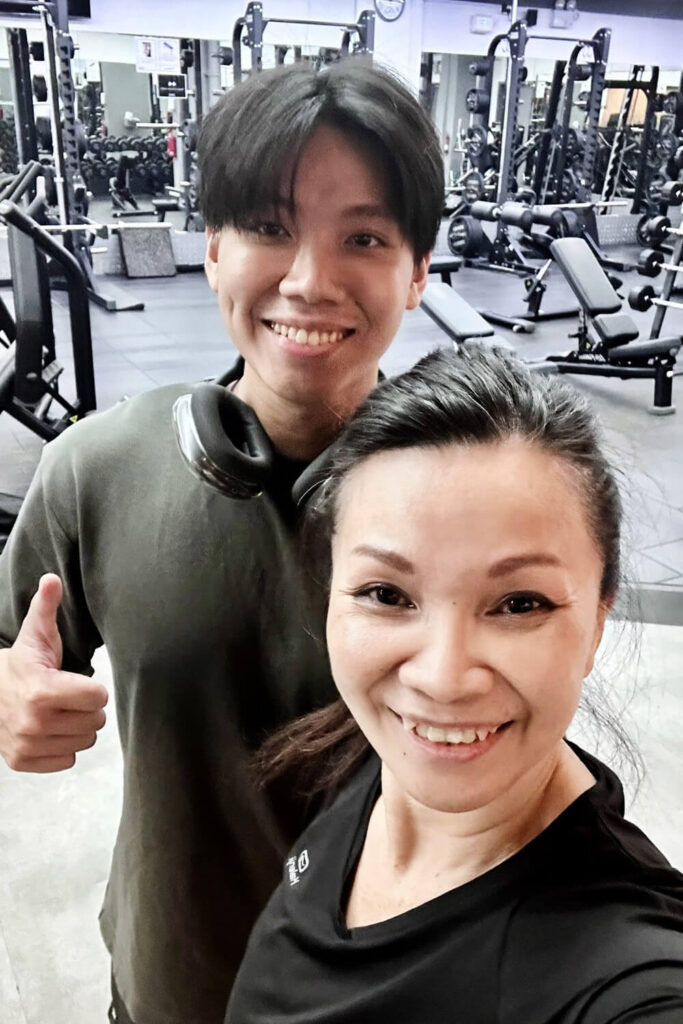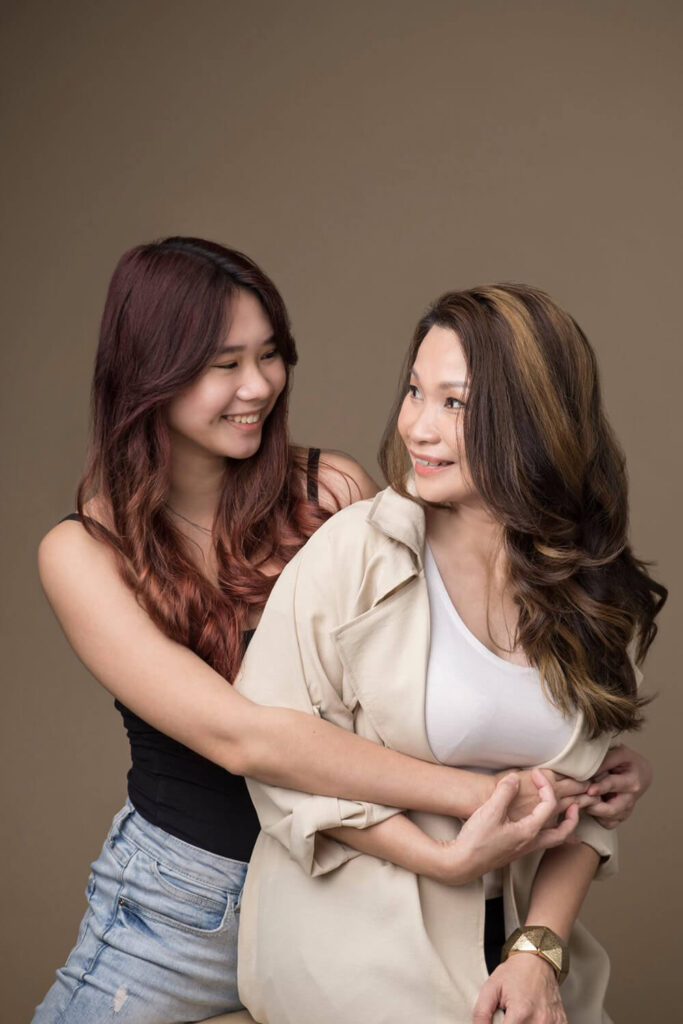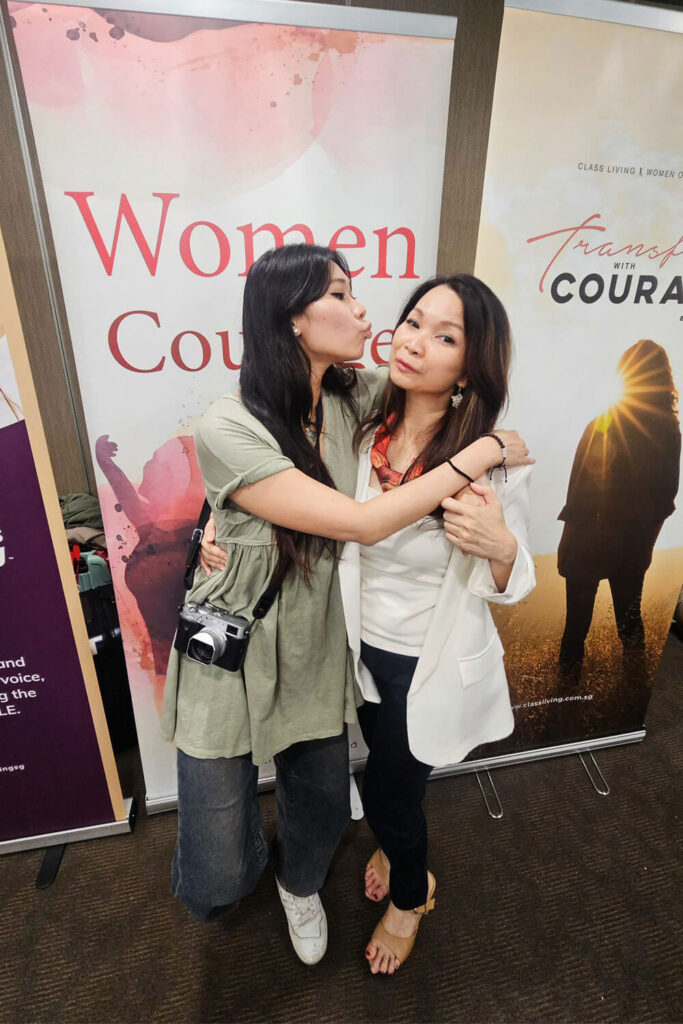
When Claudia shared with her mother about her plans for an overseas trip, Lilian Ong found herself dishing out warning upon warning and advice upon advice, and telling her daughter what she needed to do.
Although Claudia was already 21 and had travelled overseas before, Lilian couldn’t help but worry about her safety and all the details, she recalls. “It was her first trip with only one girlfriend and it was for 39 days—without me!”
But her daughter stopped her mid-flow, looked her in the eyes, and said, “Mummy, you can trust me to take care of myself.”
That, says Lilian, was when she realised that “it was time for me to really let go, and that she didn’t need me the way she used to anymore”. Suddenly, she realised that she had moved on to a new stage of motherhood. Claudia was now 21, and her son, Tristan, was 23.
“Gone were the days of diapers, milk vomits, and all the crying and ferrying them to and from schools and enrichment classes,” she says.
When Kids are No Longer Kids
As it turned out, Claudia, a meticulous and resourceful girl, had thought of every detail when planning her trip to Europe. “It was very systematic,” says Lilian. “She even shared a detailed plan with me to ensure that I was updated so that I would not be worried sick. I told myself, ‘God is with her. All is well’.”
The incident was also a teaching point for Lilian Ong, a social entrepreneur, coach, and author who has founded several social enterprises that seek to empower women, such as Class Living and Women of Courage Asia. Like most parents, she had always seen her two children as little kids, but now that they were no longer “children”, she had to revise her parenting approach—and her conversations with them.
Thankfully, she adds, she had been adjusting the way she related to them over the years, especially as they entered their teenage years, and now, she was starting to bear the fruit of those efforts. She shares some of her own experiences and lessons:
1. Meet them as young men and women, individually
One habit that Lilian cultivated as she saw her children into adulthood was to have one-to-one “dates” with them. When they were around the age of 14, she began meeting each of them over a meal, an afternoon tea, or even for a late-night supper.

This not only allowed her to know Claudia and Tristan better as they grew up and to engage with them on a different level—as individuals with independent thinking and ideas—but it also gave her the opportunity to show them how she appreciated each of them.
“Each child is uniquely special with a very different personality,” observes Lilian, “and I love them uniquely and in my own special ways.”
In doing this, she took inspiration from Psalm 139:13–14, which reminded her that God himself had made each of her children uniquely. Paraphrasing the passage, she says: “He created their inmost beings; He knit them in and through me. I praise Him because they are fearfully and wonderfully made; His works are wonderful.”
The practice of meeting her teens individually has carried over into adulthood. Over the years, they’ve covered a wide spectrum of conversational topics that have expanded as they went through different life stages.
And it wasn’t always about serious issues like expectations, commitments, and responsibilities in life, or faith issues like values, calling, and purpose in life; Lilian and her kids have also chatted about relationships and fun stuff like recreation, sports, and entertainment.
“We still love and enjoy our conversations as adults,” she says, “We enjoy the deep connections as unique individuals, as friends, as mentor and mentee, and as mother and child.”
2. Stay open to conversations, and don’t judge
One question that her children used to ask—and which would prompt her to brace herself—was: “Mummy, can I ask you some questions?”
“Every time my children ask this question with a certain expression on their faces, I know in my gut that we’re about to engage in another interesting conversation,” she says. “But I would say, ‘Sure, go ahead’. And I would sit up and lean in to give them my full attention.”
Even more importantly, Lilian would try to keep a straight face and avoid becoming judgmental and opinionated—even if the question was about a sensitive topic like sex, abortion, or LGBTQ. This stance, she says, helped her to keep the conversation channel open with her kids as they grew up and explored issues of identity and faith, and allowed her to share a Christian perspective, or her own opinion as a parent.
“Adopting an open mindset and practising ‘holding space’—or creating an environment where they feel safe and heard—for my children to process their thoughts and emotions in conversations since young, has prepared us to be able to talk about anything under the sun till this day,” she says.

3. Get them to think, and don’t spoon-feed
Like most parents, Lilian was used to giving her kids straight answers to whatever questions they asked. But she realised that she had to change this approach as they grew up, so that they could learn to think for themselves.
“My role as a mother is to help them practise hearing from the Holy Spirit for themselves, instead of waiting for me to spoon-feed them with an answer and solution.”
“I’ve learnt to practise being intentional in asking thought-provoking questions, to draw out the answers or solutions I believe they already have within them,” she says. “My role as a mother is to help them practise hearing from the Holy Spirit for themselves, instead of waiting for me to spoon-feed them with an answer and solution.”
This has not been easy, as Lilian has had to think of how to craft her responses to questions instead of simply answering them. But she was guided by the idea that as they grew older, her role in their lives had to change, too.
“I realised that I am not just their mother,” she says, “but also their role model, mentor, and best friend.”
4. Bring the Word of God into their lives
Where possible—and appropriate—Lilian has tried to introduce God’s Word and godly truths into conversations with her children. Her inspiration comes from Proverbs 22:6, which calls parents to “start children off on the way they should go, and even when they are old they will not turn from it.”
“I knew that I wouldn’t be with them 24/7, so one thing I must do was to make sure that they knew how to turn to God for help.”
When Claudia and Tristan were younger, she would get them to memorise Scripture such as Psalm 23, Proverbs 3:5–6, and Philippians 4:13. “I knew that I wouldn’t be with them 24/7, so one thing I must do was to make sure that they knew how to turn to God for help,” she says.
She also tries to impart to them biblical lessons and instructions that they can apply to their lives and daily situations.
One example is 1 Thessalonians 5:11, which calls on followers of God to “encourage one another and build each other up”. Lilian urged Claudia and Tristan to see that this guiding principle could apply to their relationship as siblings, as well as to their friendships with others.
“Although it is pretty normal for the children to get into bickering, whenever they’re faced with a real problem, they would encourage each other and know they can call on each other for support and comfort,” she says. “They also noticed that their friends like to come to them for advice and comfort, too.”
She adds: “I always remind them that we’re a reflection of God’s love to a world of hurting people, and our goal is to direct people back to God because only He can bring complete healing.”
“My Mother, My Mentor”
While many of the conversations that Lilian has had with her children have not been easy—especially when they were teenagers—she has discovered, years later, that all the pain and frustration have borne fruit.
Tristan, who used to go to her for advice or to bounce his thoughts when he was growing up, still turns to her whenever he needs a listening ear. Once, Lilian heard him share with his friends that she was “not just his mother, but also his mentor”.
Another time, Claudia called her on the phone to update her about what had happened between her and her boyfriend. When her friends, who were with her when she made that phone call, asked her why she would even share such details with her mother, Claudia replied: “Why not? My mum is my best friend. I share everything with her and she is the first one to know!”

Lilian cherishes these incidents. “Comments like these are priceless to me as their mother,” she says. “These comments felt like a loving affirmation from God, that I have been a faithful steward of His beloved children whom He entrusted to me.”
While many of the conversations that Lilian has had with her children have not been easy—especially when they were teenagers—she has discovered, years later, that all the pain and frustration have borne fruit.
She hastens to add, however, that she has made many mistakes in her parenting journey—one that has included, she shares frankly, struggles with a sense of loss of identity, an intense battle with self-doubt, and even suicidal thoughts and depression.
“Motherhood has been one of the most intense and awakening training grounds for me personally—for personal growth, for character moulding, and for leadership development,” she says. “It has been a powerful journey of self-discovery and testing of my faith.”
What has sustained her through this journey, she adds, is learning to trust God, and His Word and promises. “God has always been with me,” she says. “He has never left me nor forsaken me throughout the process of this training in motherhood. He has awakened my courage and poured out His grace for me to be an overcomer and transformational leader for my children.”
Her years as a mother, and the challenging and joyful conversations she has had with her children, she adds, has given her new perspectives of God as her Father. “I got to know and experience God at a very intimate level,” she says, “and I learnt that He is cultivating the fruit of the Spirit in me through this process.”



